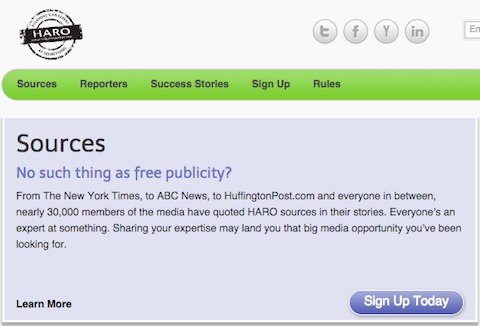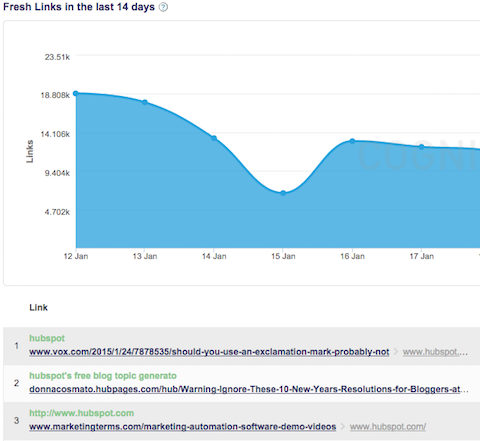Backlinks With Answers SEO Guide Tricks 2016
Backlink tip #1: Respond to questions on Quora
Quora is filled with people looking for help. All you have to do is search for keywords related to your industry, and you’ll see hundreds, if not thousands, of questions.
For example, let’s look at the key phrase “content marketing.” With a quick search, I was able to find this question, asking if content marketing actually works.

Respond to the question, and if there is a specific blog post or article within your domain that helps reinforce your answer, you can link to it.

The screenshot above illustrates the idea. It has my answer with the link I provided to a blog post I wrote that covers a few data points relevant to the discussion.
When doing this, make sure you don’t link to your site just to gain a link. You don’t want to spam Quora as it will hurt your reputation. Instead, you want to focus on responding with a great answer and only add a link to your website when it makes sense.
Backlink tip #2: Help a reporter out
You’ve heard of HARO, right? Of course you have, but are you actually on it?
In case you don’t know what HARO is, it is a website where journalist go when they need help.

They post questions, and if you can help them answer any of them, you can get some free press. You can get published on a news website or a magazine like Entrepreneur.com, which makes HARO a great place to pick up high quality backlinks.
You won’t get a ton of links from this site, but the links you do get will help drive traffic as this site links to authoritative sites.
To get these links, all you need to do is spend 30 minutes to an hour on HARO each week.
Backlink tip #3: Find broken links going to resources or products
Broken link building is hard unless you focus on the right type of broken links. A lot of blogs and websites have them, but very few are willing to fix them.
Your best bet is to find resource pages related to your field and to look for broken links within those pages. I’ve found that web masters are more likely to fix broken links on resource pages as they tend to generate more traffic than general blog posts.
To find these broken links and resource pages, you can use a tool called Broken Link Finder.
The tool costs money…but it is worth it.
If you end up using the tool, make sure the keywords you input contain words like “resources” as it will help you find the right type of broken links.
Backlink tip #4: Industry forums
Have you ever used forums to build links? If you haven’t, why not?
Chances are you are afraid of the Penguin penalty. Assuming you are participating only on relevant forums and aren’t spamming them, you shouldn’t have much to worry about.
For example, Warrior Forum and a few other marketing forums talk about Quick Sprout. Every time they do, I see an influx of 300 to 700 visitors. It’s not too shabby for just one link.
When responding to questions on forums, use the same principles as you do when responding to questions on Quora: respond to questions and link to your website when it makes sense.
Again, don’t spam these forums. Only respond when it makes sense, and make sure your answer is thorough.
When adding a link to your website, avoid using rich anchor text.
Backlink tip #5: Link to relevant sites
I know this may sound crazy, but linking to other relevant sites within your own content is a great way to build links.
For example, I recently published a post on competitive auditing that linked to over 20 websites.
Before I published the post, I visited each of those websites and grabbed an email address of someone who works there. If I couldn’t find an email address of a specific employee in the marketing department, I looked for an email address on the contact pages of these sites.
I then sent out a personalized email to each of those websites:
Hey [person’s name],I just wanted to let you know that I think [insert their website] is such a great resource that I had to mention it in my latest blog post [link to your blog post].I know you are busy, so no need to reply. But if you get a spare moment, check out the post. If you like it, feel free to tweet it out.Thanks,[your name]
Don’t expect people to link back to your website. Some people will do it naturally, but that number will be less than 5%. Roughly 20%-25% of the people you email will tweet out your post. This action will bring more visitors to your website, and a portion of those visitors may end up linking back to you.
Backlink tip #6: Round-up posts
Do you know what some of the most popular and linked to posts are on the Internet? It’s round-up posts.
If you aren’t familiar with round-up posts, read this one on link building, in which 50 experts share tips on how to build links.
That post generated over 383 social shares and 34 backlinks according to Ahrefs. That’s not bad for a round-up post.
How do you go about creating one of these posts? All you have to do is find a bunch of experts in your field and email them asking one question. You don’t want to ask them more than one question as it will drastically decrease your response rate.
You also want to find at least 30 experts as round-up posts that don’t contain a large number of experts don’t do very well.
I recommend making a post with at least 50 experts. When emailing these experts, make sure you give them a deadline to respond by. In addition, make sure you email at least twice the number of experts you need to complete your post as about half of them will not respond.
Once you publish your expert round-up, email each expert with an email like this one:
Hey [expert name],I just wanted to thank you for participating in the expert round-up on [insert the topic of the round-up].You can find the post at [insert url], and I’ve also included a link to your website.Feel free to tweet it out and share it with your following.Thanks for participating.[insert your name]
Similarly to Backlink tip #5, this action will bring you more visitors from the social web. A portion of those visitors may end up linking back to you.
Backlink tip #7: Track your competitors’ links
Any backlink tool can tell you who is linking to your competition, but very few of them sort these links by freshness.
Cognitive SEO has a tool that shows you the freshness of these links. In other words, it’ll show you who recently linked to your competition. All you have to do is select “Fresh Links” within its dashboard.

As you can see, the Cognitive SEO provides a list of the most recently found backlinks.
You can then take that list and manually hit up each of those sites with an email like this one:
Hey [insert their name],I was just reading your blog post on [insert the post title and link to it] and noticed that you didn’t link to [insert your URL]. I’m not sure if you are familiar with it, but it can teach your readers about [insert the value their readers will get].I just thought I would mention it to you because you linked to [insert competitor URL], but you forgot to mention [insert your URL].Anyways, keep up the great work. I love your content.Your fan,[insert your name]
For every 100 such emails you send out, you’ll typically generate 7 to 10 links. It’s not a lot of links, but it adds up.
Conclusion
Creating a good product or service or writing great content doesn’t guarantee that people will link to you. If you want to build links and, more importantly, generate traffic, you have to be proactive.
If you test the tactics I mentioned above, you’ll notice that in addition to getting more backlinks (and eventually more search traffic), you’ll also see an increase in your referral traffic.
What are some other proactive ways to gain backlinks?






A review in my opinion is a more substantial backlink, because it gives it more creditability than a random social bookmarking site or comment on a blog post.
ReplyDeletebacklinks